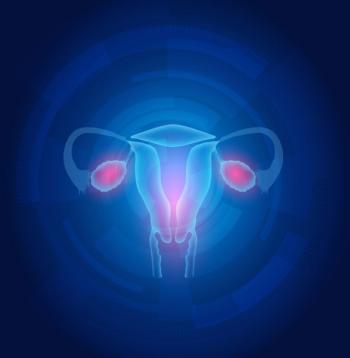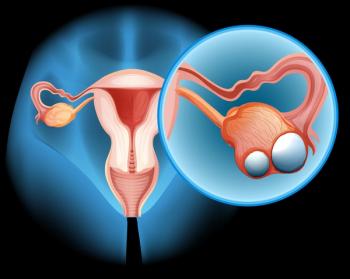
Ovarian Cancer
Latest News
Latest Videos

More News

There’s been joy in the journey, along with the drugs, the endless waiting in chilly waiting rooms, the lab work, shaving my head twice, the CT scans every three months and the steady hum of anxiety in my brain. The time with my husband, kids and grandkids has made it worth every minute of cancer treatment. Bring it on, cancer.

The results, according to the study authors, demonstrate that screening the general population for tubal and ovarian cancer each year does not result in a survival benefit.

An ovarian cancer survivor shares her experience receiving a radiation treatment on her lymph nodes.

“I could’ve implemented my bucket list, backed away from writing contracts, outlined my end-of-life wishes and prepared my children for my possible, impending demise,” writes a woman with ovarian cancer. “Instead, I signed a four-book publishing contract and started a full-time career as a fiction writer.”

BRCA mutation carriers who used oral contraceptives for a long period of time had a lower risk of developing ovarian cancer, according to new research.

The combination may offer patients with recurrent, platinum-agnostic ovarian cancer a more effective, non-platinum-based treatment option.

Recent research found that women with a history of pregnancy – even if it was not carried to term – had a decreased risk of ovarian cancer.

As the cancer treatment landscape continues to expand, patients and their caregivers should be aware of the various clinical trials currently being conducted — including studies they can possibly join.

Recent findings showed that the cost of cancer care affects nearly half of women with gynecologic cancer, with younger and/or non-white patients at higher risk for financial toxicity.

A woman with stage 4 ovarian cancer discusses the importance of having compassion for other people, because you never know what they may be dealing with.

CNN’s chief international anchor announced her ovarian cancer diagnosis live on-air today, which she wants everyone to use as a call to arms for all people to undergo cancer screening.

Maintenance treatment with Lynparza plus Avastin over Avastin alone provided a certain group of patients with ovarian cancer a substantial survival benefit.

Progression-free survival improved with Zejula compared with placebo in patients with BRCA-mutated ovarian cancer with no new safety signals.

Each month, we take a look back at the most popular CURE® stories. Here are the top five stories for May 2021.

Evidence from a phase 3 trial does not support the addition of Tecentriq to a specific chemotherapy regimen with Avastin for patients with newly diagnosed stage 3 or 4 ovarian cancer.

This maintenance therapy approach approved progression-free survival without a major impact on quality of life in patients with newly diagnosed ovarian cancer with a BRCA mutation who recently responded to chemotherapy.

Vulnerable older patients with advanced ovarian cancer do not respond well to carboplatin treatment alone compared to a combination with paclitaxel.

In this episode of the “CURE® Talks Cancer” podcast, Maria Ciesla, an ovarian cancer survivor, and her daughter Alex Cornwell discuss Ciesla’s cancer journey and how it led them to do genetic testing that revealed they were both carriers of the BRCA1 mutation.

Today is World Ovarian Cancer Day, and in honor of this day that was created in 2013 to raise awareness about the disease, CURE® is rounding up the latest news and updates in this cancer space.

“We’re all blessed that there are so many dedicated, caring health care professionals willing to step in and fill the void when members of the team move or retire,” writes a patient with cancer. “We can never forget how tough a gig it is or say thank you enough.”

Clinical trials are often the key to advancements in treating ovarian cancer. As part of its “Speaking Out” video series, CURE® spoke with Dr. Debra Richardson about what patients should know about joining a trial.

On social media, CURE® recently asked its readers to share if they sought a second opinion when discussing their cancer diagnosis and treatment. Here’s what some of them said.

Despite on-treatment clinical progression, patients treated with Avastin and standard chemotherapy had a median progression-free survival of 11.8 months compared with 8.8 months in those treated with standard chemotherapy alone.

On behalf of the National Ovarian Cancer Coalition, CURE spoke with Dr. Debra Richardson, from Stevenson Cancer Center, about the basics of ovarian cancer and its treatments, clinical trials and psychosocial effects.

This week on the CURE® Talks Cancer podcast, we’re chatting with an ovarian cancer survivor and teacher about how she maintained her sense of humor through treatment and why it’s important to remain connected to your friends and family, especially during your darkest moments.













